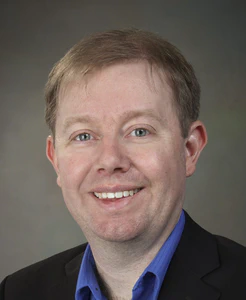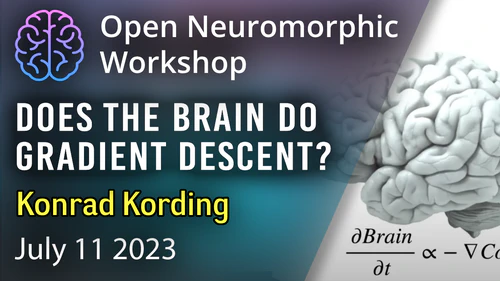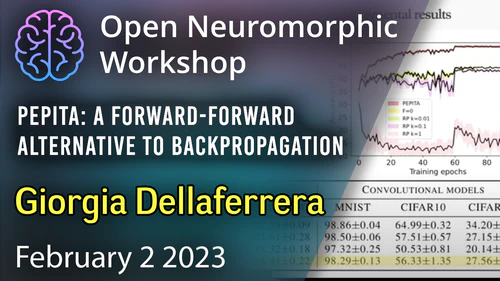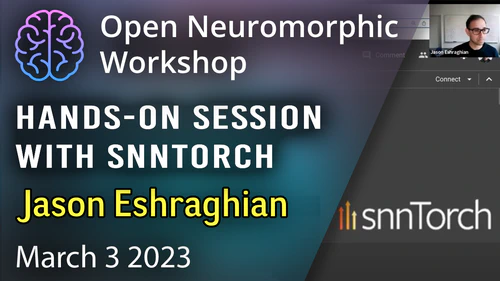Fugu is a high-level framework specifically designed for developing spiking circuits in terms of computation graphs . Accordingly, with a base leaky-integrate-and fire (LIF) neuron model at its core, neural circuits are built as bricks. These foundational computations are then combined and composed as scaffolds to construct larger computations. This allows us to describe spiking circuits in terms of neural features common to most NMC architectures rather than platform specific designs.

About the Speaker
Brad Aimone is a Distinguished Member of Technical Staff in the Center for Computing Research at Sandia National Laboratories, where he is a lead researcher in leveraging computational neuroscience to advance artificial intelligence and in using neuromorphic computing platforms for future scientific computing applications. Brad currently leads a multi-institution DOE Office of Science Microelectronics Co-Design project titled COINFLIPS (which stands for CO-designed Influenced Neural Foundations Inspired by Physical Stochasticity) which is focused on developing a novel probabilistic neuromorphic computing platform. He also currently leads several other research efforts on designing neural algorithms for scientific computing applications and neuromorphic machine learning implementations.
Brad has published over seventy peer-reviewed journal and conference articles in venues such as Advanced Materials, Neuron, Nature Neuroscience, Nature Electronics, Communications of the ACM, and PNAS and he is one of the co-founders of the Neuro-Inspired Computational Elements, or NICE, conference. Prior to joining the technical staff at Sandia in 2011, Dr. Aimone was a postdoctoral research associate at the Salk Institute for Biological Studies, with a Ph.D. in computational neuroscience from the University of California, San Diego and Bachelor’s and Master’s degrees in chemical engineering from Rice University.


